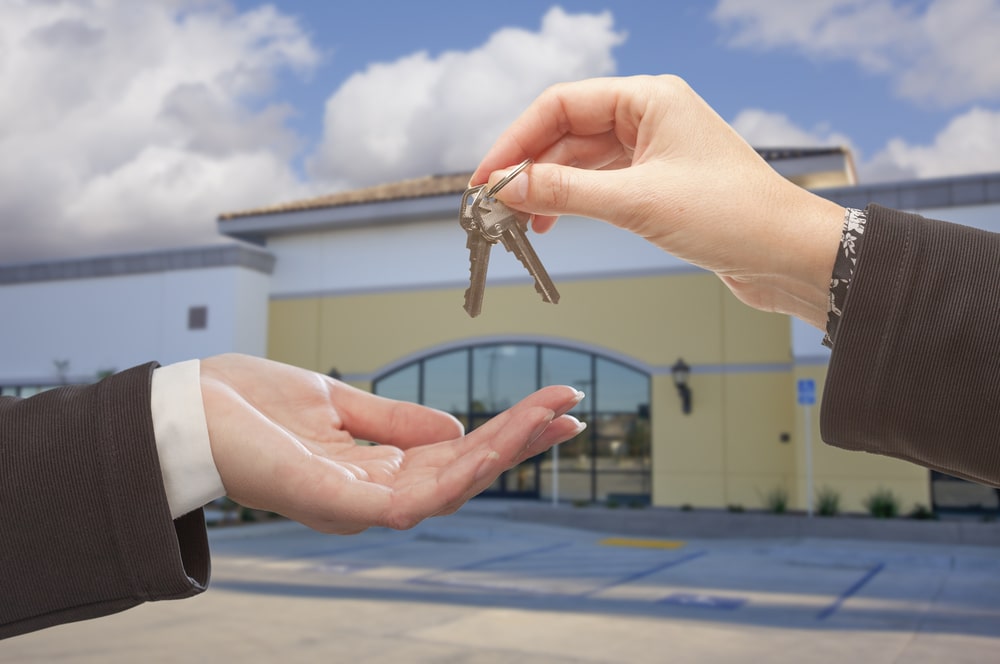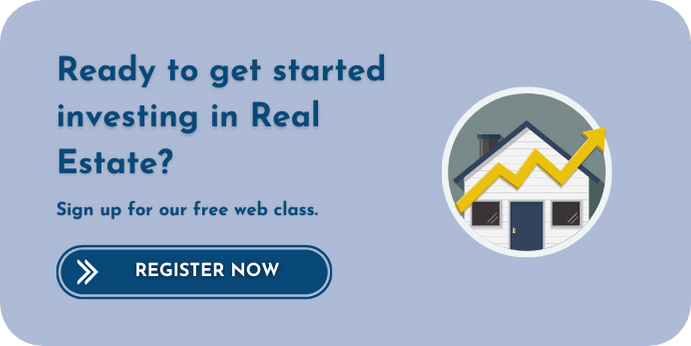Can You Make Money Wholesaling Houses
Key Takeaways
If you enjoy keeping up to date with market trends, following respected real estate blogs, or are addicted to HGTV, you might have more in common with a real estate investor than you think. Perhaps you've been considering a career in real estate for quite some time now but have yet to take the plunge. Maybe you've even come close to making an offer on a property, but the deal fell through because you were afraid to take action. If any of the above statements ring true for you, wholesale real estate, or real estate wholesaling might be the solution you've been looking for.
Wholesale real estate is the perfect way to get your feet wet in real estate investing. As with any new business opportunity, there are both benefits and disadvantages to the process. Make sure to evaluate the following pros and cons before getting started.
What Is Real Estate Wholesaling?
Real estate wholesaling is how an individual, the 'wholesaler,' acquires a contract from the seller of the property and assigns that same contract to an end buyer. Wholesaling is considered one of the best short-term investment strategies and is a great way for individuals to break into the real estate investing industry. This is because wholesaling does not require significant capital to get started. Wholesaling can also help beginners learn quickly about the real estate market and gain invaluable negotiation skills.
A wholesaler can make a profit by identifying properties being sold for under market value, making an agreement with the seller of the property, and assigning the purchase contract to another buyer. They earn revenue through a wholesaling fee attached to the transaction — often a percentage of the overall property cost. End buyers are typically real estate rehabbers or other investors who prefer not to spend time identifying discounted properties or negotiating with sellers. By acting as the middleman, wholesalers generate income by helping real estate investors find and close potential deals. However, there are some things to keep in mind to make wholesaling work well, discussed next.
Does Wholesaling Real Estate Work?
Wholesaling real estate works for those who are willing to put in a great deal of sweat equity. While it is relatively risk-free, wholesaling requires plenty of due diligence and effort to see a healthy return. Running a wholesaling business can be challenging because you must be able to identify properties being sold for well under market value, negotiate deals with sellers, and target cash buyers who are willing to purchase those properties. To be successful in wholesaling, you must be prepared to invest a lot of effort in building strong lead lists, as well as networking and curating your wholesale buyers list over time. Those willing to master the process in such ways are sure to experience the benefits of wholesaling real estate.
Example Of Wholesaling Real Estate
The concept of wholesaling real estate is fairly simple. For example, let's assume there's a homeowner intent on selling. However, the property is fairly distressed and therefore incapable of being sold for its true market value—if at all. Instead of rehabbing the home themselves, the homeowner has another option: enter into a wholesale agreement with a subsequent investor. Whether the homeowner can't afford to make the upgrades or they don't want to, they can agree to enter into a wholesale contract with a wholesaler. The contract will give the wholesaler the right to buy the property at a specified price (often lower than market value because of the work needed to rehab). The wholesaler will then find an end buyer willing to pay slightly more than the wholesaler's original contract and sell their rights to buy the house to the new investor. Remember, the wholesale isn't selling the property, but rather the right to buy the property.
Wholesale Real Estate Investing Vs House Flipping
The "wholesaling vs. house flipping" debate doesn't have a correct answer. Instead, investors need to determine what they want out of investing and choose which exit strategy is best suited to get them one step closer to their goal. House flipping, for example, is typically reserved for investors with a little more access to capital, time, and experience. If for nothing else, house flipping costs more, takes longer, and comes with more risk. However, in the event investors are adequately prepared, house flipping also comes with more generous returns. Wholesaling real estate, on the other hand, has become synonymous with entry-level strategies.
"Wholesaling is lower risk, because you don't purchase the house or finance the repairs," says David Lecko, CEO of DealMachine. "As a wholesaler, you invest your time and money to generate leads and send marketing to sellers, which involves much less money than buying and rehabbing a house."
Real estate wholesaling generally takes a lot less time to complete, costs investors a lot less upfront, and reduces risk exposure. Consequently, wholesaling also comes with smaller returns.
[ Wondering how to fund your first investment deal? Click here to register for our FREE online real estate class where you can learn how to get started in real estate investing, even with limited funds. ]

Whether an investor should wholesale or flip will depend entirely on their experience, access to capital, available time, and risk aversion. However, there is no right or wrong answer. It is entirely possible to make a lucrative career out of each strategy. While wholesaling generally makes less money per deal, the short-time period will make up for lower returns in volume. Flipping, on the other hand, will see investors complete fewer deals but also increase profits.
3 Pros Of Wholesaling Real Estate
- Earn profits in a shorter time frame
- Become immersed in the real estate industry
- Accessible to those with limited cash and credit
Now that we have defined wholesale real estate, you probably wonder about the benefits associated with the strategy. Read on to gain insights into the top three benefits of property wholesaling:
1. Make Money In Less Time
If you've done your due diligence and educated yourself on the process, wholesaling can be a very lucrative business. Wholesaling is great for new investors because it requires little to no personal finances or experience. If your offer is accepted, it is entirely possible to close the deal and get your check in 30 to 45 days or less.
Imagine this: You come into contact with a motivated seller whose property has an estimated after-repair value (ARV) of $125,000. (Here is our resource on how to calculate ARV). Your below-market offer of $100,000 is accepted, and you put the property under contract. You find a buyer, ask for $115,000, and close the deal using your own attorney or title company. This means that you've just made $15,000 in a relatively short time frame, and both you and your buyer benefit from the deal. Don't forget to add your buyer's information to your buyers list because they might want to do business with you in the future, assuming your initial transaction went well.
2. Learn About The Real Estate Market
Wholesaling is great for beginners because it fully immerses them into the real estate industry in a short period of time. With the right instruction and education, you will learn marketing, negotiating, organizing, and acquiring the proper legal documentation. In a sense, a wholesale deal combines many aspects of other types of real estate transactions you would encounter throughout your investing career. With a few wholesale deals under your belt, you will know what to look for in deals, as well as what to avoid.
3. No Credit Involved And Little Cash Required
If a low credit score or limited access to capital is what has been keeping you from investing in real estate, wholesaling is an excellent route to take. You can participate in a wholesale agreement even with bad credit because you do not typically purchase the property. Instead, you are assigning the purchase contract to an end buyer, who is the one that has to go through the credit checks and fund the purchase. However, wholesale real estate is not without potential downsides. Learn more about the cons next.
3 Cons Of Wholesaling Real Estate
- Income can be unpredictable
- Dependent on finding buyers
- Buyers list can be difficult to maintain
Investors should know that any exit strategy will come with potential risks and downsides, although most can be mitigated. The following includes some disadvantages of wholesale real estate investing that should be given careful consideration:
1. No Guaranteed Income
Wholesaling is not your typical nine-to-five job. Of course, there is the merit of being your own boss, but unfortunately, you are not guaranteed that trusty paycheck every two weeks. There is also no health insurance or retirement benefits that come with wholesaling. Therefore, if you are considering making real estate investing—especially wholesaling—your full-time gig, you must be the type of person who knows how to manage their finances. The best thing you can do is set aside a "rainy day" fund if a deal does not materialize as planned.
2. Difficulty Finding Buyers
The key to being a successful wholesaler is having a solid buyers list. In the world of wholesaling, no buyer means no deal. Additionally, your personal risk is contingent on the way your contract is written. Depending on how much you put down in escrow, you might have to repay your seller if you cannot find a buyer. It is best to have potential buyers lined up before even making an initial offer to the seller. That way, your risk of losing money is substantially lessened. Also, if word gets out that you cannot complete deals, future buyers will be less likely to want to do business with you.
3. Staying On Top Of An Organized Buyers List
Half the battle of maintaining a successful wholesale business is maintaining an active buyers list. With the right marketing, you should have a fairly solid list of contacts after completing a few deals. However, it is not just about having those contacts. It is about knowing the different preferences of each buyer. If you know "Buyer A" prefers turnkey rental properties, you will only contact him when you find a property that meets those needs—i.e., a property that will require less work and is in slightly better condition. If you know that "Buyer B" is a rehabber, you should only offer him properties that need major construction and are priced well below market value. Instead of offering every property you come across to every contact on your buyers list, only reach out to those you truly believe will find value in that particular property. By staying on top of your contact list and tailoring your offers to each individual's preferences, you will be sure to earn loyal clients.

Is Wholesaling Illegal?
The legality of wholesaling real estate can be a hotbed for debate. In general, those who like to argue that wholesale real estate investors are doing business illegally feel this way because they are not licensed brokers. However, wholesalers are not actually selling a property in and of itself but rather are selling the ownership of the real estate contract associated with the property. Based on this argument, wholesaling is widely viewed as a legal activity. However, it cannot be stressed enough that real estate professionals should always be well-versed in their local market's rules and regulations and ensure that their business activities are wholly legal before making any moves of their own.
How To Wholesale Real Estate
Now that you know the basics of real estate wholesaling, as well as the pros and cons of wholesaling real estate, let's determine if such a career path is a good fit for you. To help you get started, the following sections discuss the traits of successful wholesale real estate investors and how to execute a proper business plan.
How To Be A Successful Wholesale Real Estate Investor
Is wholesale real estate investing a good fit for you? Below we share the character traits that make for a successful wholesale real estate investor:
- A trained mindset: It can be argued that successful entrepreneurs do not have innate talents or abilities. Successful investors tend to have the right mindset—one that is cultivated over the years—and can attack every task with consistency and dedication.
- Make use of technology: Those who incorporate technology into their workflows tend to be able to process more information with accuracy while also maintaining organization. Examples of tools that can be a boon for your business include customer relationship management (CRM) software and mobile applications that allow you to scan and store documents in the cloud. Learn more on how to automate your business with real estate software.
- Have an effective website: According to the National Association of Realtors, 51 percent of today's home buyers find their home on the internet, representing the largest proportion of consumers who take to the web when searching for goods and services. Having a great website helps establish your brand and authority, helping to drive more business your way.
- Reliable access to neighborhood comps: A real estate investor's success largely depends on their ability to identify comparable home sales, so that they can price their properties competitively. Also, neighborhood comps allow investors to identify properties that are being sold for under market value. One way to access reliable market transaction data is to partner up with a real estate agent who has access to the MLS.
- Know when to outsource or delegate: Savvy entrepreneurs know how much their own time is worth. Juggling daily tasks and projects is a constant balancing act, and investors who try to accomplish everything autonomously can end up hurting themselves in the long run. Cramming too many activities into your schedule can lead to errors, sloppiness, and even missing out on great opportunities. Knowing when to outsource or delegate tasks and projects can prove to be a worthy investment.
[ Ready to take the next step in your real estate education? Learn how to get started in real estate investing by attending our FREE online real estate class. ]
Creating Your Real Estate Wholesaling Business Plan
Once you've decided to pursue a career in wholesale real estate, the first thing you need to do is put together your business plan. Use this step-by-step guide to get started.
1. Generate Leads
One of the most important qualities of any successful wholesaler is their ability to produce leads. You may have a good grasp of your local market and the wholesaling process, but you won't get very far without incoming leads. Fortunately, there are many different ways you can get your phone to ring. From Craigslist to launching direct mail campaigns, investors should utilize every resource they can. Sourcing leads need not be expensive, but you do need to be consistent with everything you do. For more information, be sure to check out our guide on how to acquire high-quality real estate leads.
2. Know The Numbers
Both sellers and buyers alike will be looking to negotiate deals with wholesalers who have fair, accurate numbers. This includes a fair purchase price based on comparable sales, the cost of repairs, and the property's after repair value (ARV). Note that the cost of repairs will be based on the property's condition and how much work is needed. All of these numbers should be incorporated into your offer to the seller and again to your end buyer. Remember, seasoned investors will be able to see right through you if you try to manipulate the numbers. You will need to find that sweet spot where the purchase price is mutually beneficial to the seller and the end buyer — while still ensuring enough is remaining for your wholesaling fee. This can leave a narrow margin, which is why many wholesalers focus on volume and turnover rather than the profitability of each sale.
3. Build Your Buyers List
Having a large buyers list is great, but it's even better to have a smaller, more dedicated list of clients with whom you've formed strong relationships. Every time you complete a transaction, you should take the time to find out what your buyer is looking for. If you know what your buyers want, you can look for specific properties and deals that fit their needs, thus helping you streamline your wholesale business. If you deliver good properties and good deals, you can rest assured that your investors will want to work with you again.
Now, you may be wondering exactly how to find these buyers we have mentioned time and again. Use the following section as your guide to begin building your buyers list.

How To Find Cash Buyers For Wholesale Real Estate Deals
Half of the battle of sustaining a successful wholesale business is finding seller leads, and the other half is building a solid list of cash buyers. Wholesalers typically build their buyers lists through a combination of networking and direct marketing. Eventually, establishing strong business relationships can lead to repeat business, helping to take out a lot of the guesswork. Below are a few strategies used by wholesalers to target cash buyers:
- Subscribe To Wholesaler's Buyers Lists: According to David Lecko, CEO of DealMachine, other wholesalers are a great place to start searching for leads. "The best way to find cash buyers for wholesale deals is to subscribe to the top 5 wholesaler's buyers lists in your city, so you start receiving their properties for sale via email. Then after about 1 month, go back and look up those properties' county records and see who purchased the properties. Then, skip trace and call those owners next time you have a property that you'd like to sell," says Lecko.
- Craigslist: Craigslist is a great resource for placing ads for wholesale deals, as well as identifying potential buyers. In the "Housing" section, peruse the hundreds of "for sale" or "for rent" properties to identify owners and landlords who may be interested in a future wholesale deal.
- Networking: Networking with local real estate investors, landlords, and real estate agents can lead you to meaningful encounters, as well as help you develop long-lasting business relationships. Become an active member of your local real estate investing club, where you may meet active cash buyers, a fellow investor who may introduce you to interested buyers, or even someone who wants to partner with you on a future project. Also, connecting with real estate agents will help you gain access to lists of recent cash sales.
- Lead Capture Forms: In this day and age, anyone hoping to develop a successful business is expected to have an online presence. It is easy to set up a lead capture form on your business website where visitors can submit their personal contact information. To increase traffic to your website, promote your brand through social media, blogging, advertising and marketing.
- Courthouse Auctions: Buyers are required to have all cash at courthouse auctions, so this is a direct approach to finding cash buyers. Visit courthouse auction sessions early and regularly to network with this group of active cash buyers. Don't forget to hand out business cards and to follow up with any connections made.
- Hard Money Lenders: Not all cash buyers will actually have the total purchase price of a property readily available. When that is the case, they will often enlist the help of a hard money lender to help close a deal. Because of this, hard money lenders can be an excellent source of cash buyer referrals. Their best interest is to help you to assist in the funding of future deals in return.
How To Maximize Your Profits In Real Estate Wholesaling
If you've already started your wholesale business, perhaps you are looking for some tips on maximizing your returns. Here are five important tricks to maximize your real estate wholesaling goals:
1. Think About The Seller
Remember, one of the main goals of wholesale real estate is to get the property contracted at the lowest possible price. However, negotiating a favorable price can be a challenge, even if a seller is facing foreclosure. They may have other options to explore, including other wholesalers or cash buyers. That is why it is of utmost importance to put yourself in the seller's shoes when making your presentation. By clearly communicating the wholesaling process and conveying that you understand their pain points, you'll help your chances of striking up a deal. For more help, you won't want to miss our no-fail script for talking with motivated sellers.
2. Be Transparent
Another component to building a successful real estate wholesaling business is transparency. This characteristic is important when acquiring wholesale deals, as honesty will always be the best policy for anything you do as an investor. As a wholesaler, you will need to explain your position, associated risks, and intentions. Sellers often want to work with people that they feel they can trust, regardless of price. This is why it's important to answer questions directly and fully, even if they may not like the answer.
3. Have An Exit Strategy
An exit strategy is how an investor plans to remove themselves at the end of a deal and how they plan to make their profit. For a wholesaler, the typical exit strategy is quickly assigning contracts to end buyers for a wholesaling fee.
To do so effectively, wholesalers should dedicate time to routinely build and maintain their wholesale buyers list. The more buyers you have on your list, the greater the chance that you'll be able to turn over a property. As previously mentioned, many wholesalers grow their list by attending networking and investment club meetings; and they maintain these relationships by getting to know each investor's buyer preferences. Also, following up regularly is a great way to know when investors on your list are actively looking to buy.
4. Keep Everyone Involved
One of the jobs of a real estate wholesaler is to keep everyone involved in what is going on throughout each deal. Even if you have a signed deal, you need to see things through to the closing. This means staying in contact with the seller while keeping the end buyer updated on the progress made. This can be an anxious time for the seller, and they'll likely have plenty of questions along the way. Taking the time to keep your sellers and buyers informed and happy is not only good customer service. It's another opportunity to build strong relationships that can lead to repeated business for you in the future.
5. Post-Closing Follow Up
Every deal you close should be treated as an opportunity to grow your real estate wholesaling business. After a transaction is completed, take the time to reach out or set up a meeting. Too often, wholesalers will close on a deal and move on without debriefing with everyone involved. Assuming you did your job and everyone is happy, they should want to work with you again in the future. All it takes is a quick email or text to keep your name fresh on everyone's minds. Not doing so could equate to your leaving potential deals on the table.
Keep reading to find out two methods for effectively closing a wholesaling deal.
2 Methods For Closing The Deal In Wholesaling
In wholesale real estate, there are two main methods used for closing a deal. So far, we've discussed the assignment of a contract several times, but there is a second option: the double closing (also known as a double escrow). Let's take a look at these two popular ways to close a wholesale deal.
Real Estate Wholesaling: Assigning The Contract
Assigning a contract is arguably the easiest way to wholesale real estate. As the name suggests, assigning a contract means that the wholesaler sells the contract, not the property itself. While they don't own the property, they control it using the contract. Subsequently, once the wholesaler assigns the contract for a subject property, an end buyer will assume the role of the buyer.
It is important to note that you must sign a contract to purchase a subject property during a wholesale deal. This is known as a purchase and sale agreement. Furthermore, make sure the contract does not prevent you from "assigning" or "selling the contract" to an end buyer. All contracts, by default, can be sold to another party (unless specifically stated otherwise within the contract).
It is important to understand that the assignment of a contract does not mean you are actually selling the property, nor will your name go on the title. You are simply assigning your rights within the contract to purchase the home and sell the rights to the end buyer for a profit. When it comes time for the buyer to purchase the property, make sure they send the deposit to the title agent or attorney handling the closing. Once the transaction is completed, you are awarded a "finders fee" for acting as the "middleman." Of course, this is contingent on the premise that every requirement is met in the purchase and sale agreement.
Real Estate Wholesaling: The Double Close
In some cases, a wholesaler may elect to conduct a double escrow, such as when the seller does not agree to an assignment of the contract clause or when it is not allowed by local regulations.
Otherwise known as a "simultaneous close," a double closing is an equally profitable real estate wholesaling strategy. Essentially, the process of a double closing will witness the investor purchase the property and resell it at a later date. Depending on the particular scenario, the reselling of the subject property may land on the same day it was purchased or even 60 days later.
During a double close, your company will enter into a chain of title and is therefore considered the true owner of the property for a short period of time. Accordingly, the transition of property ownership officially transfers from the seller to you (A-B transaction). It is then up to you to find a buyer who will purchase the property for more than you paid for it (B-C transaction). While the execution of a double closing is not much different from a regular purchase, wholesalers should make sure that their lender allows this type of transaction.
Summary
Wholesale real estate presents itself as an excellent opportunity for beginners to enter the real estate investing arena, as it can require little to no capital and is a great way to learn the ropes of the real estate industry. Some individuals like wholesaling so much that they make it their full-time careers. Either way, if you are driven, disciplined, and organized, there is no limit to how much money you can make in your wholesaling career.
Ready to get started building your real estate business and take control of your financial future?
Wholesaling real estate is one of the best strategies that can help new investors familiarize themselves with the real estate industry. Learn how to get started in wholesaling— even with little to no capital— with our new online real estate class hosted by expert investor, Than Merrill.
So if you're considering real estate investing, register for our FREE 1-Day Real Estate Webinar and get started learning how to start a successful investment business today!


Can You Make Money Wholesaling Houses
Source: https://www.fortunebuilders.com/the-pros-and-cons-of-real-estate-wholesaling/
Posted by: mcguireectilow.blogspot.com

0 Response to "Can You Make Money Wholesaling Houses"
Post a Comment